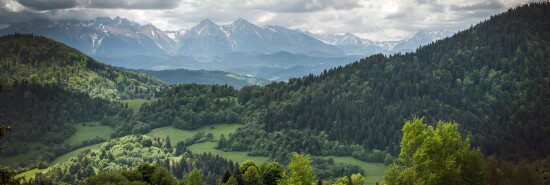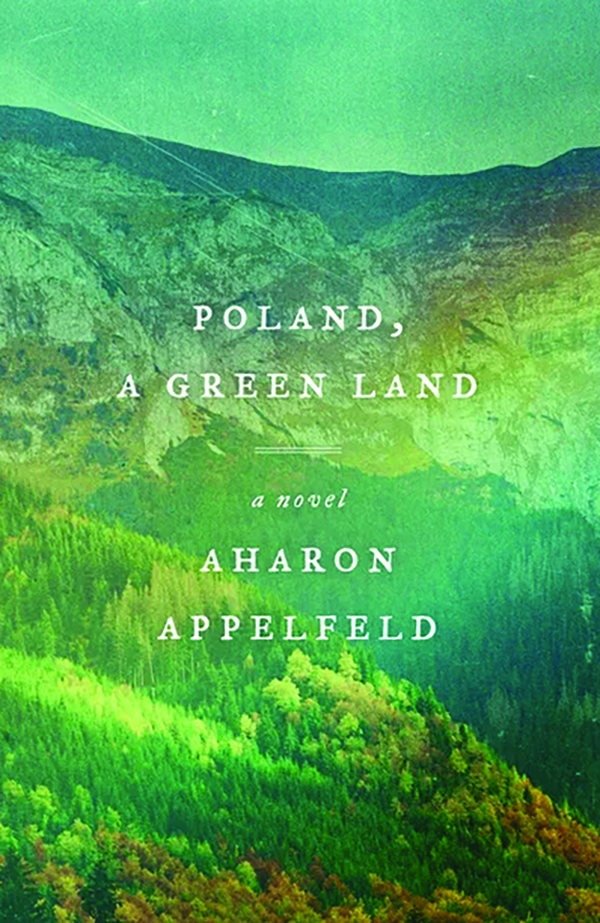
Revisiting Poland in Aharon Appelfeld’s fiction
Malcolm Forbes
In 1988, Philip Roth flew to Israel to interview his friend and fellow writer Aharon Appelfeld at his home on the outskirts of Jerusalem. The interview, which was published in the New York Times Book Review and later collected in Roth’s book Shop Talk, took the form of a detailed Q&A about Appelfeld’s life and work. Those unfamiliar with either were brought up to speed at the outset with a thumbnail sketch of Appelfeld’s history and his oeuvre. Roth declared that “Appelfeld is a dislocated writer, a deported writer, a dispossessed and uprooted writer.”

Appelfeld, who died in 2018, couldn’t have been any other kind of writer. Born in Czernowitz (then part of Romania, now in Ukraine) in 1932, his childhood ended and his world caved in when the Nazis invaded and began systematically killing Jews. His mother was murdered, but he and his father were sent to a forced labor camp. He managed to escape but then faced another ordeal hiding and foraging in forests for two years. At the end of the war, he wandered all over Europe, homeless and rudderless, picking up languages but being master of none. When he finally found asylum in Palestine in 1946, he started learning, and eventually writing in, Hebrew.
AN INTELLECTUAL HISTORY OF INDEPENDENCE
Appelfeld wrote over 40 books. Much of his fiction features displaced and disorientated individuals buffeted by the darkest tide of 20th-century history or else navigating a new life in Israel while wrestling with traumatic memories of his past.
In his writing, Appelfeld often dealt obliquely with Jewish persecution and the horror of the Holocaust. The Nazis hardly appear in his wartime memoir, The Story of a Life (2003), though they cast a large shadow. The eponymous protagonist of The Immortal Bartfuss (1988) is a survivor of one of “those notorious camps” who makes no mention of the hell he endured there. And Appelfeld’s most famous work from 1978, Badenheim 1939, reads like an allegorical fable in which the Jewish residents of an Austrian spa town are relocated to Eastern Europe by inspectors from the “Sanitation Department.”
Appelfeld’s last book to appear in English, To the Edge of Sorrow, about a band of Jewish partisans battling to stay alive in a Ukrainian forest, marked something of a departure by centering squarely and directly on the plight of Jews during the war. Three years on from that novel comes another one that confronts the Holocaust head-on. Originally published in 2005 and now skillfully translated by Stuart Schoffman, Poland, a Green Land is the story of a Jewish man’s visit to his parents’ birthplace. What starts out as a straightforward pilgrimage with the opportunity for fact finding and soul searching soon turns into a complex journey of self-discovery filled with dark revelations and painful home truths.
Yaakov Fine has led a comfortable and prosperous life in Tel Aviv since turning his late parents’ textile shop into a women’s fashion boutique. But for all his success, he finds happiness hard to come by. His daughters have married and left home, leaving him feeling suffocated with just his wife, Rivka. Prone to bouts of gloom and loneliness, he is also plagued by bad dreams — dreams that “erupted within him and conquered his nights.”
For years, Yaakov has wanted to travel to Poland, his ancestral homeland, specifically the village of Szydowce, where his parents lived until war forced them to flee. His grandparents and the village’s other Jewish inhabitants were not so fortunate, ending up victims of a Nazi massacre. Yaakov’s parents lived to tell their tale but never related the whole story to him, only that the land they left was once a green and pleasant one. Now seems as good a time as any for Yaakov to see their village for himself. “Where’s the logic?” an incredulous Rivka asks him. “What will you find there?” “Everything,” replies Yaakov.
And so his trip begins. On a train from Warsaw to Krakow, Yaakov gets into conversation with a fellow Jewish man who doesn’t share his optimism about Szydowce. “There are no Jews there,” he informs him. “There is nothing there.” Later, a taxi driver scoffs at his choice of destination: “It’s not even a village; it’s just fields without people.” But once Yaakov gets there, he quickly discerns signs of life. Magda, a beautiful farmer, gives him shelter and shares recollections of his parents and grandparents, whom she knew when she was a young girl. Yaakov enjoys her company but also his own as he surveys the lay of the land. Taking in his verdant, pastoral, and peaceful surroundings, he comes to realize that his parents instilled in him “not only a repressed animosity for Poland but also a love for these landscapes.”
But it isn’t long before the serenity is shattered and the idyll tarnished. Wanda, “the village memory bank,” tells Yaakov more about his family, then urges him to be careful: “For some reason, Jews arouse the darkness in people.” Yaakov finds this out for himself as he extends his stay and finds antisemitism still present in Poland. He tries to visit the former house of his grandfather, only to be threatened by its angry occupant. Drunken farmers eye him with suspicion in the local tavern and peddle crude stereotypes: Jews are cunning and cowardly, stubborn and arrogant, greedy and slippery. Magda tries to reassure him by explaining that the villagers are afraid Jews will come back and demand the property that was stolen from them. When levels of animosity intensify, she speaks more bluntly: “Lovers of Jews you won’t find here.”
She proves to be an exception as romance blossoms between her and her lodger. But tainting Yaakov’s newfound joy is the formidable challenge of negotiating with the village’s corrupt mayor. Yaakov wants to move fragments of desecrated Jewish tombstones to Israel. The mayor decides the stones are in fact “priceless cultural and historical assets” — but then manages to come up with an exorbitant price of ten thousand dollars. Can Yaakov find a way to bring the stones home? And with Magda’s love for him offsetting the villagers’ hate, does he even want to go home?
Poland, a Green Land is an enthralling novel suffused with quiet brilliance and subtle power. However, it has its faults. Appelfeld occasionally repeats himself. Some of his lines strive for profundity but ring hollow (“The place reveals only what the person has brought with him”). Others are let down by bland imagery: “Their lives had seemed to him like an icy lake filled with dark secrets.” More irksome are the book’s many dream sequences. “Tell a dream, lose a reader,” warned Henry James. Readers should stick around to see how Yaakov’s nightmares or warped visions play out and affect his waking moments. But patience is required, for while those dreams have undeniable color and vitality, they also impede the book’s narrative momentum.
These flaws are overshadowed by the novel’s many strengths. Appelfeld’s fluid, limpid, trick-free prose contains pockets of beauty (“The flaming sky faded, and in its place stretched a sapphire curtain sown with stars”), and he routinely captivates with various tales and set-piece scenes. There is a gripping account of Yaakov’s parents’ desperate flight to safety through a range of hideouts — or “stations in a long, arduous reckoning of the soul.” We read Wanda’s stark depiction of the fate of Szydowce’s Jews with mounting dread and feel the expertly calibrated tension in the exchanges between Yaakov and that “slick extortionist,” the mayor.
This is a slow burn of a book, and it is all the better for it. It doesn’t ever ignite into a fierce and impassioned drama but rather smolders with urgency and potency. We follow Yaakov eagerly to his journey’s end, where he learns that “Poland itself is a plowed-over cemetery.” But what matters more to him, and to us, is all that he learns along the way about who he is, who he loves, and where he has come from.
CLICK HERE TO READ MORE FROM THE WASHINGTON EXAMINER
Malcolm Forbes has written for the Economist, the Wall Street Journal, and the Washington Post. He lives in Edinburgh.
